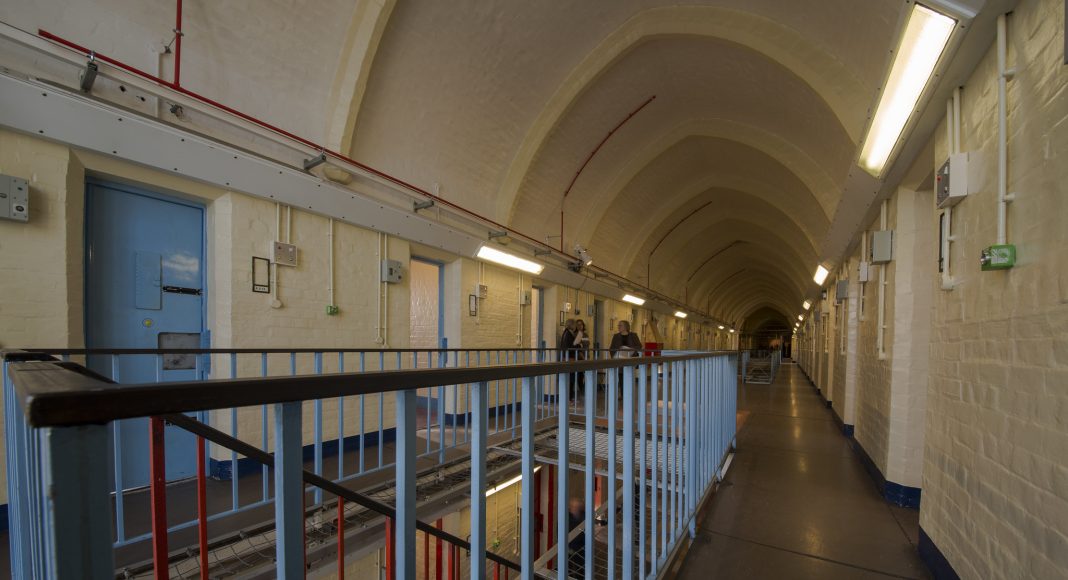On 22 May 2025 the government published the findings of the Sentencing Review commissioned last October, four months after Labour took power. Justice Secretary Shabana Mahmood announced that key parts of the Review’s recommendations will be adopted within a new Sentencing Bill later this year to bring sweeping changes to the structure of prison terms. NICKI JAMESON reports.
Chaired by former Conservative Justice Secretary David Gauke, the Review was tasked with finding ways to deal with ever-spiralling prison overcrowding, which neither the incessant drive to build more prisons nor short-term sticking-plaster early release schemes succeed in containing.
More imprisonment not less
Mahmood’s announcement was tellingly entitled ‘Landmark sentencing reforms to ensure prisons never run out of space again’. So, while accepting that it has no choice but to alter the structure of some sentences, the government will continue the drive to build its way out of crisis – in this case by ‘invest[ing] £4.7 billion more in prison building, putting the government on track to open 14,000 places by 2031… the largest prison expansion since the Victorian era’.
Earning release
The ‘new’ element in the government’s plans, following recommendations by Gauke, is the introduction of an ‘earned progression model… that will see prisoners earn their way to release through good behaviour… All offenders on standard determinate sentences will spend at least one-third of their sentence behind bars and have to earn their release at this point or face longer behind bars for bad behaviour.’
In reality this is not new and harks back to the operation of sentencing under the 1967 Criminal Justice Act (CJA), which said that ‘The Secretary of State may, if recommended to do so by the Parole Board, release on licence a person serving a sentence of imprisonment… after he has served not less than one-third of his sentence…’ Subsequent changes, most notably in the CJA 2003, moved away from this model, reserving the carrot and stick approach mainly for prisoners serving indeterminate terms (lifers and those sentenced to Labour’s invidious Indeterminate Sentence for Public Protection – IPP), who cannot get out of prison until they demonstrate remorse for their crimes and ‘compliance’ with the oppressive prison regime. Now all prisoners will be in a similar boat.
There is no mention in the new plans of the nominally independent Parole Board so presumably decisions on who has been a good boy or girl will be made by prison governors or other staff members. The potential for subjectivity and individual prejudice is therefore huge, as is that for punishing those whose mental health simply does not permit them to ‘behave’ in the requisite manner.
The convoluted arithmetic involved is also bound to further increase the current catalogue of errors and illegalities. A report by the Chief Inspector of Prisons published on 18 July exposed how at London’s Pentonville prison, 130 prisoners had been unlawfully detained past their release date during the previous six months.
A smorgasbord of punishment
There is a bit of something for everyone here though and the many reformers who gave evidence to the Gauke Review will be happy at the ‘presumption against custodial sentences of less than a year’, although this is of course not cost free, and comes with a further presumption ‘in favour of tough community sentences that better punish offenders and stop them reoffending’.
So called ‘community punishment’ will be subject to a raft of changes, including:
- Greater use of curfews and exclusion zones;
- Wider powers for judges to issue ‘ancillary orders’ barring people from attending football matches, driving or travelling abroad;
- More ‘Intensive Supervision Courts’ with powers to compel people with alcohol and drug problems to take part in ‘tough treatment programmes’ or face prison.
Adding in some further ideas of her department’s own, Mahmood also said that there would be new chain-gang style work schemes ‘in which offenders can undertake tough, unpaid work, including doing a job for a private sector company with payment going to support victims. This could also include working closely with councils to find the jobs that need doing, including street cleaning and filling in potholes…’
Bursting at the seams
Unable to wait for the Review to conclude, in May Mahmood announced that from September, prisoners serving less than four years, who had been recalled to prison after their release (inevitably for some petty misdemeanour such as missing a probation appointment) will be automatically released after 28 days, as opposed to potentially serving out the whole remainder of their sentence. A similar scheme involving 56 day recalls for longer term prisoners is expected to come in next year.
Also coming in September, and involving further complex calculations, is a new early deportation scheme for foreign national prisoners. At present, those not fighting to stay via the immigration tribunal can be deported up to 18 months before their release date. Changes announced on 25 June will extend this to four years. Predictably, the right-wing press was both gleeful about the earlier deportation of ‘foreign criminals’ and perturbed that this would lead to them serving less time in prison for their crimes.
The entire criminal justice system is in meltdown. Overcrowding is compounded by massive delays in courts setting trial dates, meaning remand prisoners languish for years. It was clear from the outset, that the Review would not essentially change any of the central dynamics at play. As we wrote in FRFI at the time:
‘Nothing on the agenda of the Sentencing Review will address the fundamental inequalities inherent in capitalist society. The entire British criminal justice system continues to be a mechanism for punishing and disciplining the working class…’ (Sentencing Review – increasing the range of punishment, FRFI 303, December 2024).
Fight Racism! Fight Imperialism! 307, August/September 2025




